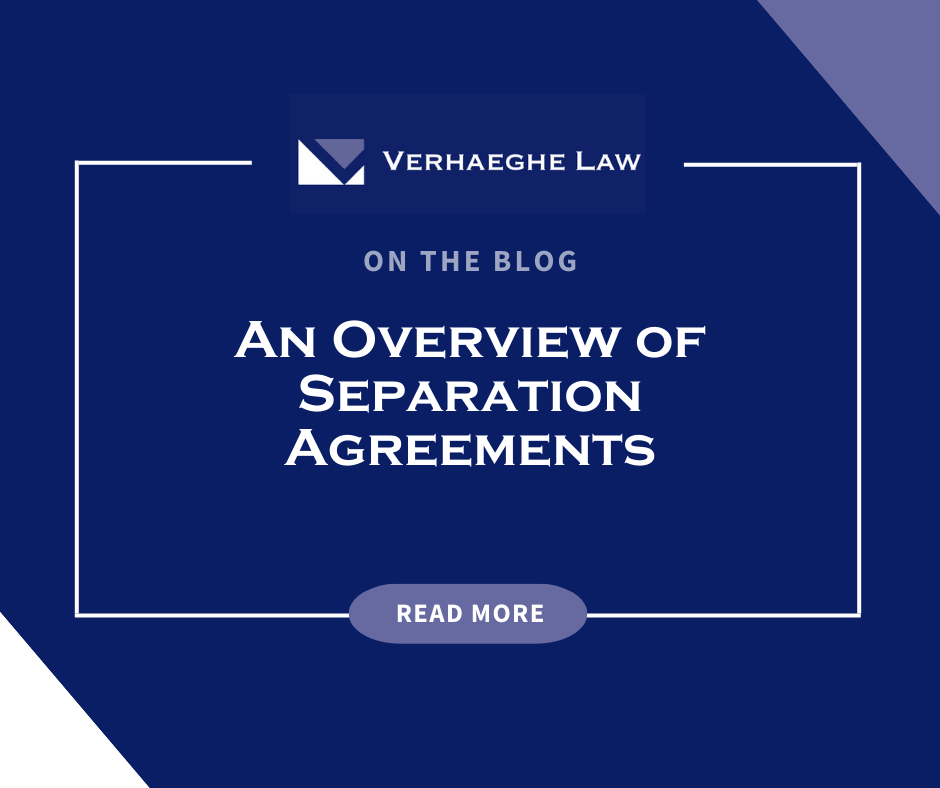An Overview of Separation Agreements

The end of a marriage or adult interdependent relationship is rarely a simple process. It may not even be clear whether the couple wishes to permanently separate, or if there is a chance for reconciliation. There is no one right way to navigate the very important decisions involved in the future of your relationship, but setting a separation agreement in place may be helpful in clarifying what would happen should you choose to file for divorce. Our Edmonton divorce lawyers would be happy to help.
If you would like to discuss drafting a separation agreement, contact our team of Edmonton family lawyers today. We would be happy to schedule a consultation and see how we may be of service to you.
What is a Separation Agreement?
A separation agreement is a legally-binding document that outlines how you will handle the separation of your affairs. It may include:
- Property division
- Division of debts
- Division of assets
- Child decision-making responsibility
- Child support
- Spousal support
- And more
Separation agreements often require full financial disclosure from both parties, and may also include plans for how they wish to navigate future disputes that may arise. For example, some couples agree that they will seek the help of family mediation. The goal of a separation agreement is to clearly identify the rights and responsibilities of both parties in unambiguous terms.
Having a separation agreement does not mean you must get divorced. Some couples draft a separation agreement, and then decide to remain together. It may be helpful to think of this as a roadmap for handling the division of your affairs, should you decide to proceed with the separation.
Do I Have to Have a Separation Agreement?
You are not legally obligated to have a separation agreement in Alberta. If you wish to divorce or separate from your spouse, you may do so. Under the Divorce Act, the grounds for divorce are adultery, cruelty, or living separate and apart for a period of at least twelve months. It may be in your best interests to consult with our divorce lawyers and discuss how to navigate your circumstances.
How Can A Separation Agreement Help?
Should you decide to get a divorce, having a separation agreement in place can provide clarity and peace of mind. Here are some ways it may help:
- Having already collaborated on the terms of your separation, there may be less conflict in the divorce itself.
- You get to decide the terms of your separation, rather than the court.
- Because you and your spouse are directly involved in creating this agreement, you will both be informed on its terms, as well as your rights. This may help prevent future misunderstandings.
- The divorce process may be faster and less expensive because key considerations have already been agreed upon regarding children, property division, and spousal support.
- Clearly outlined terms can help make your divorce more amicable.
- Because this is a legal document, a failure to adhere to its terms is enforceable in court.
- You can use a separation agreement as a legal document with financial institutions such as the CRA.
How to Create a Separation Agreement
An Edmonton family lawyer may be able to help you draft your separation agreement. In order to ensure that both parties’ best interests are represented, it is advisable that you each seek legal advice through your own respective lawyers. There are standard guidelines for a separation agreement, and a family lawyer may be able to help ensure you understand in clear terms what you may be signing. They might also help clarify decisions you and your spouse make, ensuring that you understand your legal rights.
Contact Our Edmonton Family Lawyers Today for a Consultation
While it may be emotionally challenging to draft a separation agreement, having one in place might prevent a lot of pain in the future. Just as each relationship is unique, so too are the requirements of each separation. Our team of Edmonton family lawyers are happy to discuss the particulars of your case, and see how we may be able to help. Contact us today to schedule a consultation.
** Please note, this article is intended as a general overview on the subject of family law, and is not intended to be legal advice. If you are seeking legal advice, please consult with a lawyer.
